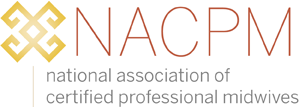For those considering a Donor-Advised Fund (DAF) or a substantial tax-deductible donation, we kindly direct you to contribute through our fiscal sponsor. To ensure your donation supports your preferred fund or initiative, please specify your choice in the "Dedicate this Gift" section. However, if you wish to make a donation without requiring a tax deduction letter, we encourage you to use NACPM's direct donation options, which benefit from lower processing fees. For contributions aimed at specific initiatives, please use the dedicated donation links found on each initiative's page. If you'd like to support our general operations, donations can be conveniently made here. Your generosity directly empowers our mission and efforts, and we are deeply grateful for your support.
Birth By Birth
NACPM isn’t working off Friedman’s Curve and a Failure to Progress model! Effacement, dilation, station, working through trauma, reconnecting with a partner, and recommitting - it is true for labor and true for the profession. We invite each of you to consider a special commitment for 2024.
Tricare Expansion Initiative
Our goal is to bring attention to this critical issue and advocate for a change that could have a profound impact on the health and well-being of military families. By expanding midwifery care coverage in TRICARE, we can take a significant step towards addressing the maternal health crisis in our nation.
Interstate Compact Agreement Initiative
The National Association of Certified Professional Midwives (NACPM) is applying for grant funding to support the creation of interstate compact agreements for midwifery licensure portability. While NACPM is applying for help through the Council of State Governments (CSG), if accepted, they will only provide technical assistance through Department of Defense (DoD) funding. NACPM requires additional support for this groundbreaking initiative. The project includes drafting model legislation, developing a legislative resource kit, and convening state policymakers, aiming to enhance occupational licensing mobility, increase healthcare access, and improve public health and safety.




